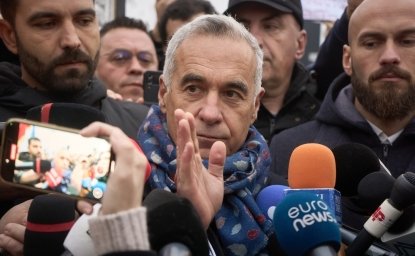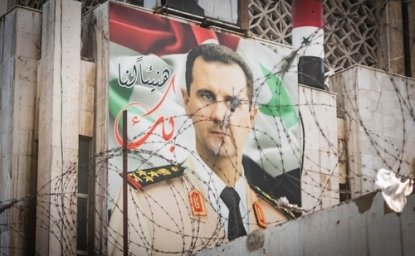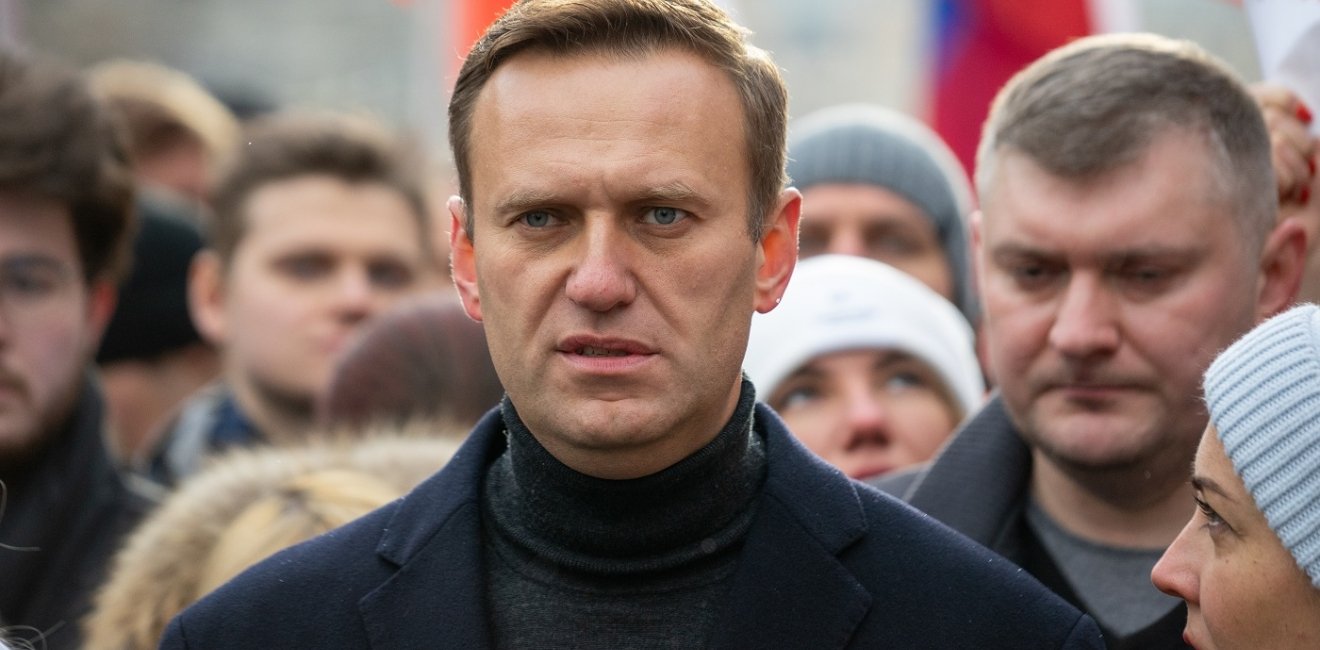
A blog of the Kennan Institute
“We speak the truth here,” was how Alexei Navalny used to end his YouTube videos. He spoke to the Russian authorities in the language of facts, law, and irony. They answered Navalny in the language of lies, revenge, and violence.
Navalny was born a quarter century after Putin. Navalny had ideas about the future. One of the names of the political party that he led and had never been allowed to officially register in Russia was “Russia of the Future.” A resentful, cowardly KGB man from the past killed a fearless man of the future. A man mad about the past killed someone who was bravely looking into the future.
I knew Alexei personally. I remember him telling me, thoughtfully, “It turns out that when we come to power, the first thing we will have to do will be to limit our own power.” He was full of plans to expand his anti-corruption agenda into a more comprehensive one that went beyond fighting crooks and thieves in the Russian government. Yet those crooks and thieves would never stop providing him with subjects for his and his team’s investigations.
Alexei understood better than most whom he was dealing with. Putin has never tired of repeating that he adored the Soviet Union. But he had fully preserved just one aspect of the Soviet system—the extraordinary power, an above-the-law force, originally established by Bolsheviks to fight the enemies of the revolution.
The core of that system was formed by the Cheka (ЧК, in Russian), the All-Russian Extraordinary Commission, which was the first of a succession of Soviet and Russian secret police organizations. After going through a dozen name changes and their respective acronyms, it is now called the FSB, the Federal Security Service. Members of this agency, according to Navalny’s own investigation, were complicit in his attempted poisoning in 2020.
Those shaky checks and balances to central power that pre-revolutionary Russia created were destroyed in the 1917 revolution. Since then, ideologies and rulers have changed, but the willingness to put themselves above the law has been passed on to each successive ruler intact. Russia is a state that builds the legitimacy of government on the uncontrollable nature of its power.
Navalny always understood that he could not play by the same rules as Putin. He could not become the extremist that the Kremlin labeled him, turning the truth inside out, as usual.
The Russian state tried to kill Navalny for several years. This murder began long before August 2020, when Alexei was poisoned with a nerve agent in the Siberian city of Tomsk. As the investigation—conducted by Alexei himself and his colleagues—showed, the assassins began stalking him several years prior to the event. There is no reason to believe the “diagnoses” reported by officials and prison authorities. This is a show assassination committed by the Russian state.
In the beginning, Putin’s emergency rule was a deliberate fueling of alarm and anxiety in society in order to justify uncontrollability. But as time went on, with more and more wars, with more and more political assassinations, the threats to his personal existence became higher because the risks of a serious pushback increased. And so, going further and further beyond the limits of any laws, Putin felt the danger more and more acutely and, falsely calling it a danger to the country, extracted from the fear for his own life the right to dispose of the lives of everyone in the country.
Designating some people as “foreign agents” and others as “loyal” is going beyond the bounds of law. Crimes can be categorized according to legal codes, and these formulations will apply to anyone. Acts of revenge against the disloyal, acts of rewarding the loyal are to be found in the repertoire of organized crime organizations, because law knows no revenge. Going beyond the law is a transition to the territory of good and evil.
The Russian authorities and the elites that support them have arrogated to themselves the right to execute enemies and reward friends. Evil is an attempt to turn the whole world around in favor of one’s own group, party, or organization, make the entire world “ours.” The authorities use loyalty oaths and rituals, they turn religion into a set of “good” or “bad” omens. It has nothing to do with genuine faith because icons are magical objects for them. Their real faith is expressed in loyalty to the boss, obeying orders, and following the rules of criminally understood “honor.”
The Polish poet Czesław Miłosz starts his 1953 book, The Captive Mind, with the parable about his nation being swept by an occupying force. The occupiers distribute among the populace a drug that induces contentment. Miłosz then builds his study of his former friends’ compliance strategies on the premise of an outside intervention. Albert Camus in his 1947 novel The Plague depicts a society fighting a deadly virus. This has been interpreted by many as an allegory of French resistance to Nazi occupation during World War II.
However, no external force has ever compelled the Russian elites to submit to an aggressive government. No smuggler boat has ever brought in an unknown foreign disease. The present crisis of humanity in Russia is nothing but homegrown.
A profound moral shift has occurred within Russian society. The wise, the responsible, the professional, and all the others may not have noticed when they proceeded past the point of no return. For decades, the same individuals have been making political decisions. They are no occupiers; they have been around for at least two decades. For many in Russia there was no need to pledge formal allegiance to the "party of war." People just stayed where they were—in their old posts and rooms. The transition happened by default. Effort was required to break free from the grip of the war party, but those willing to consciously step out of the game have always been far fewer than those who accept changes by default. Navalny was one beacon of hope for some moral normalcy to be established in Russia in the future.
Sprawled in his chair, as is his habit, Putin, in between murders and war crimes, asserts the extraordinary power he has arrogated to himself, the power to kill and mock his opponents. Alexei Navalny, in between his numerous investigations, asserted that he believed in the power of truth and could smile in the face of evil.
The Russian authorities killed Russia’s Mandela, Russia’s Havel. Putin broke a mirror that was not to his liking. He fears the future and death, but by destroying an alternative, he has brought the violent end of his own regime closer.
The opinions expressed in this article are those solely of the author and do not reflect the views of the Kennan Institute
Author

Editor-at-Large, Meduza

Kennan Institute
The Kennan Institute is the premier US center for advanced research on Eurasia and the oldest and largest regional program at the Woodrow Wilson International Center for Scholars. The Kennan Institute is committed to improving American understanding of Russia, Ukraine, Central Asia, the South Caucasus, and the surrounding region though research and exchange. Read more

Explore More in The Russia File
Browse The Russia File
In Search of Russia’s Digital Trace in Romania’s Political Crisis

With Syria’s Collapse Russia’s Regional Power Play Disintegrates

Putin's Strategy Tests Europe's Defense Limits

